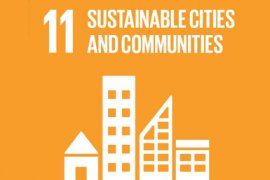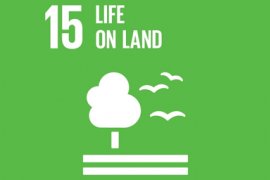Sustainable Water

Water is a key element in the Earth system, of vital importance for our societies, economies, and ecosystems. Our research addresses how land use and climate change affect hydrological cycling, water availability, flood risks and water quality across scales ranging from catchment to continental and global.
In addition, we develop new governance arrangements and water management measures for sustainable use of water. We integrate knowledge on physical, chemical and biological ecosystem services with knowledge on socio-economic and governance strategies for sustainable management of water resources, including safe water provision, biodiversity conservation, flood resilience and urban water governance. To achieve impact on the ground we work closely with policymakers, experts and practitioners at the regional, national and international levels.
Highlights

Flood risk reduction - structural measures and diverse strategies
In order to make cities around the world flood-resistant, we will have to invest in a wide range of strategies. Peter Driessen and Dries Hegger describe three lessons for a ‘safe-fail’ flood policy; a system that is designed to fail safely from time to time.

Urban Water Atlas for Europe
The Urban Water Atlas for Europe shows how different water management choices affect the long-term sustainability of water use in our cities.

Assessing transitions in the water sector through socio-technical network analysis
To overcome methodological nationalism in transition studies, this project develops socio-technical network analysis to map and measure socio-technical alignment processes across time and space. We apply the method to the ongoing transition processes in the global water sector.

Enough water and dry feet in the city
With summer in view, many people are wondering whether it will be as hot and dry as last year. And what about those cloudbursts – can our drains cope or will the streets soon be flooded on a regular basis? Stef Koop developed three tools that cities can use to gain insight into their water management performance and governance capacity.

Flood risk management step by step
The STAR-FLOOD team created a guidebook that introduces a step by step approach towards improvement of flood risk management and governace.

Exploring the potential of Managed Aquifer Recharge in Bangladesh
This project enhances knowledge on financial, institutional, environmental, technical, and social factors that influence the potential of Managed Aquifer Recharge for safe drinking water provision in saline deltas.

How water may hold the key to tiger conservation in the Himalayas
Through fundamental research and societal collaboration, Save the tiger! Save the grasslands! Save the water! aims to provide a sustainable habitat for tigers in the Himalayan foothills. To learn more, we spoke to project PhD researchers Mayuri Phukan and Pranisha Pokhrel.

Tracing water flows with tritium will rapidly become impossible, research shows
Concentrations of tritium, a type of hydrogen that is used to study underground flows of water, are declining, with implications for the development of sustainable water management around the world. For how long will the old tritium method be useful across the world?

More rain, fewer droughts – rainfall effects from targeted forestation can reduce climate change
By prioritizing targeted increases in rainfall, forestation programs may not only mitigate global climate change itself but also reduce its concrete negative effects such as droughts, according to research led by Arie Staal.












